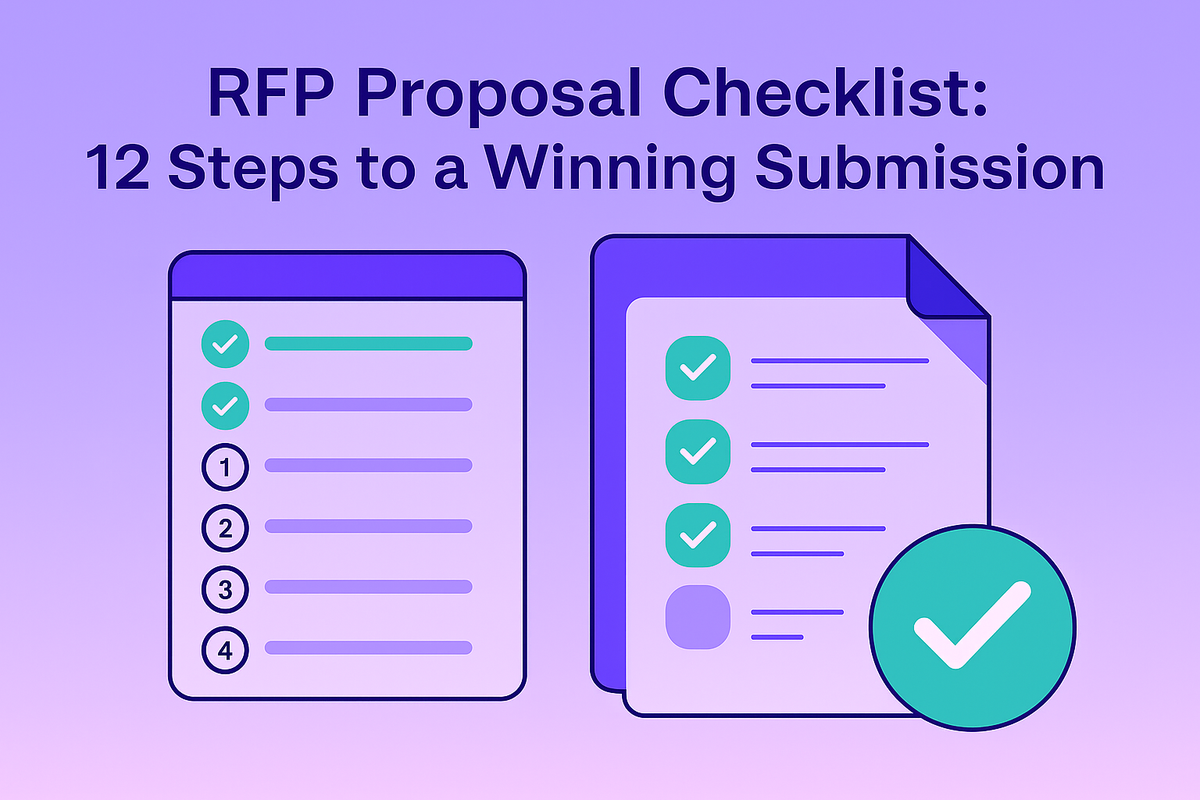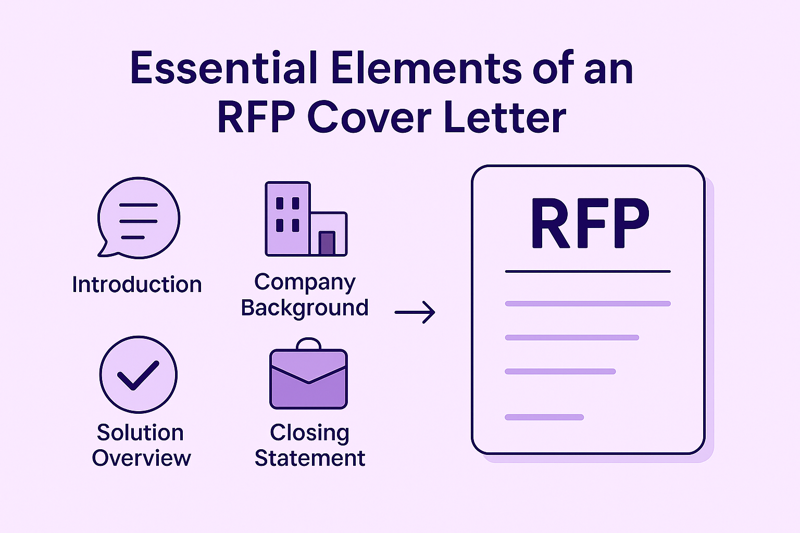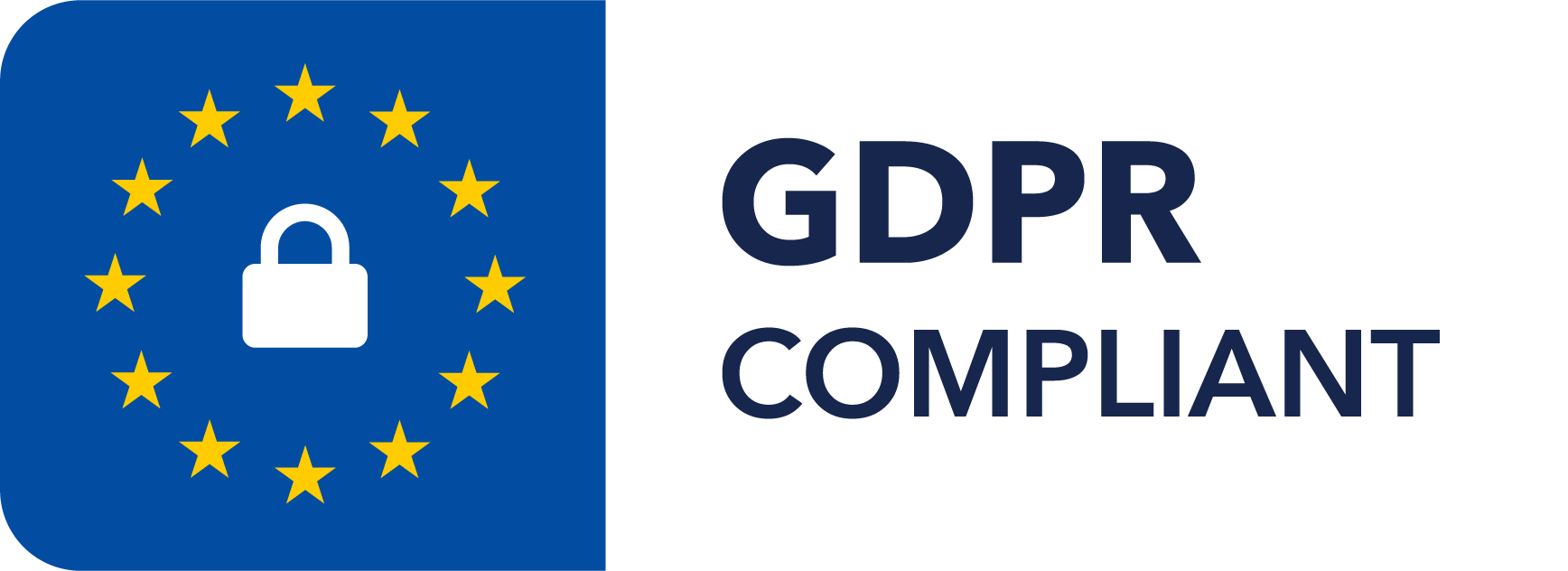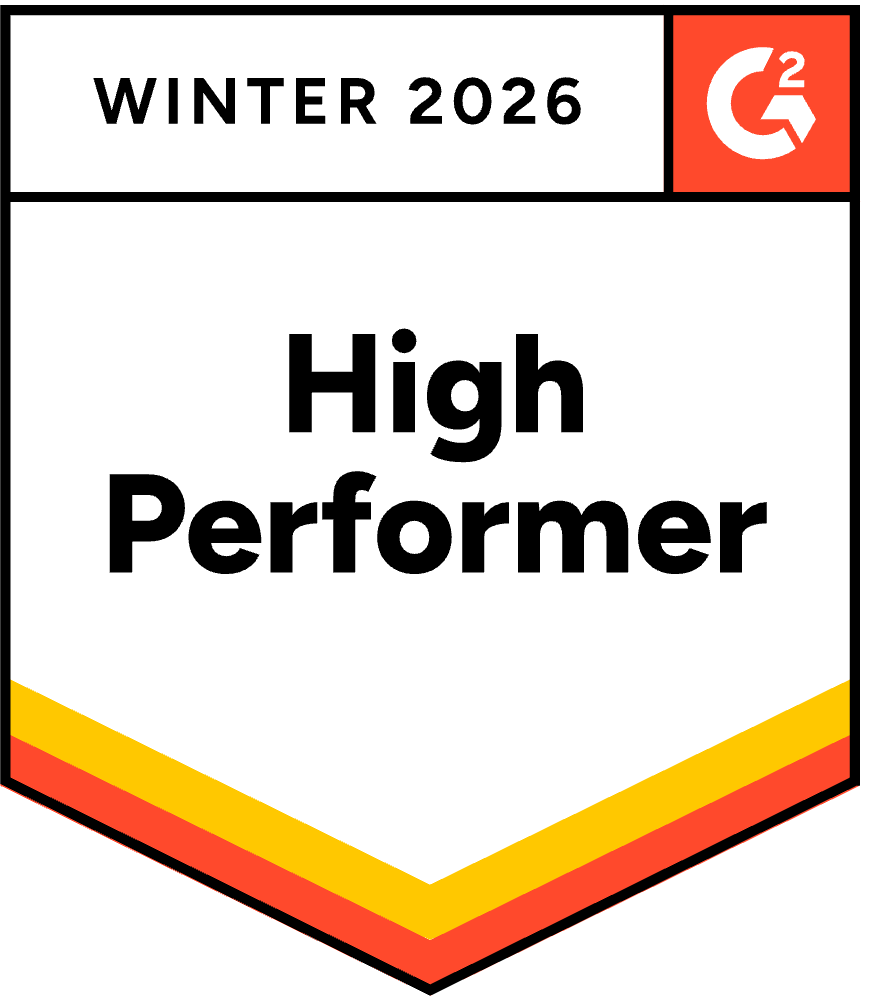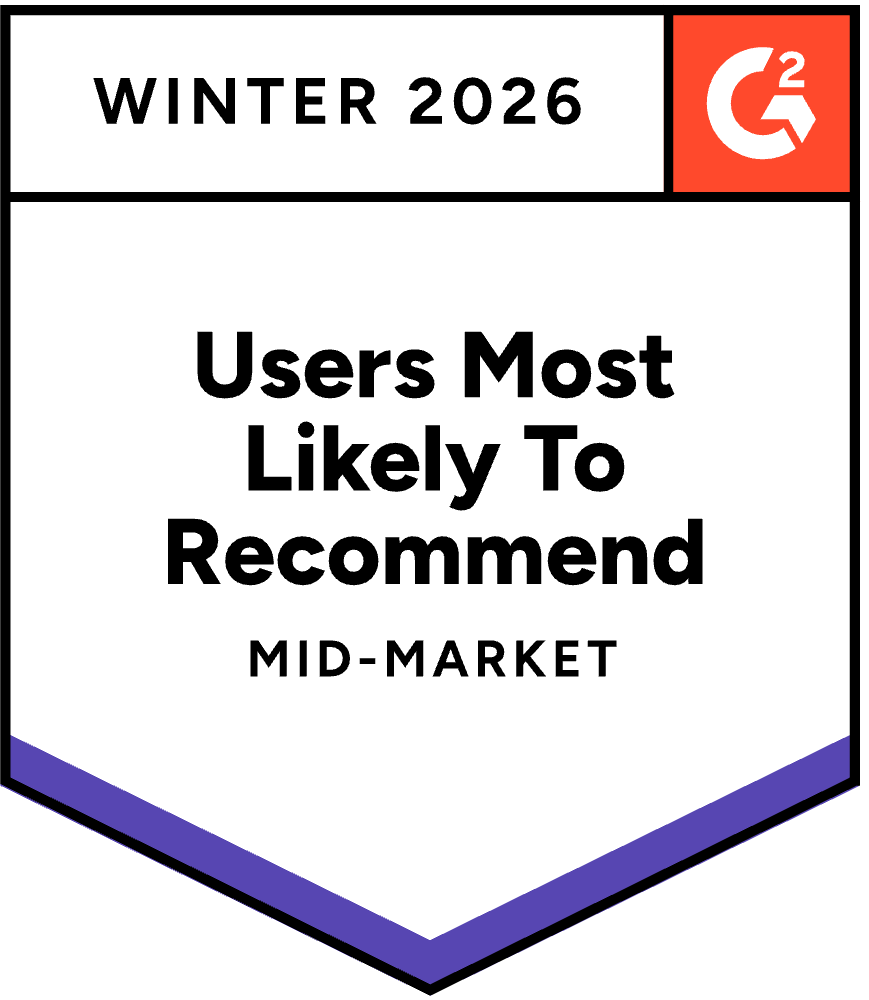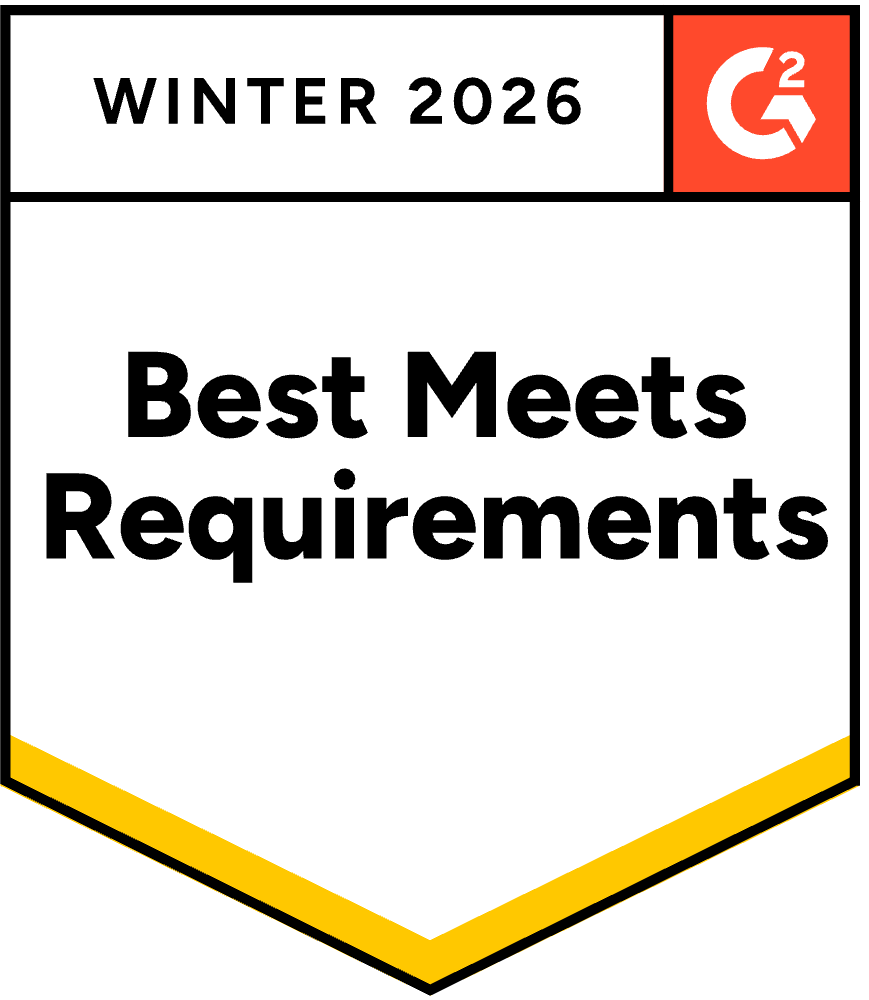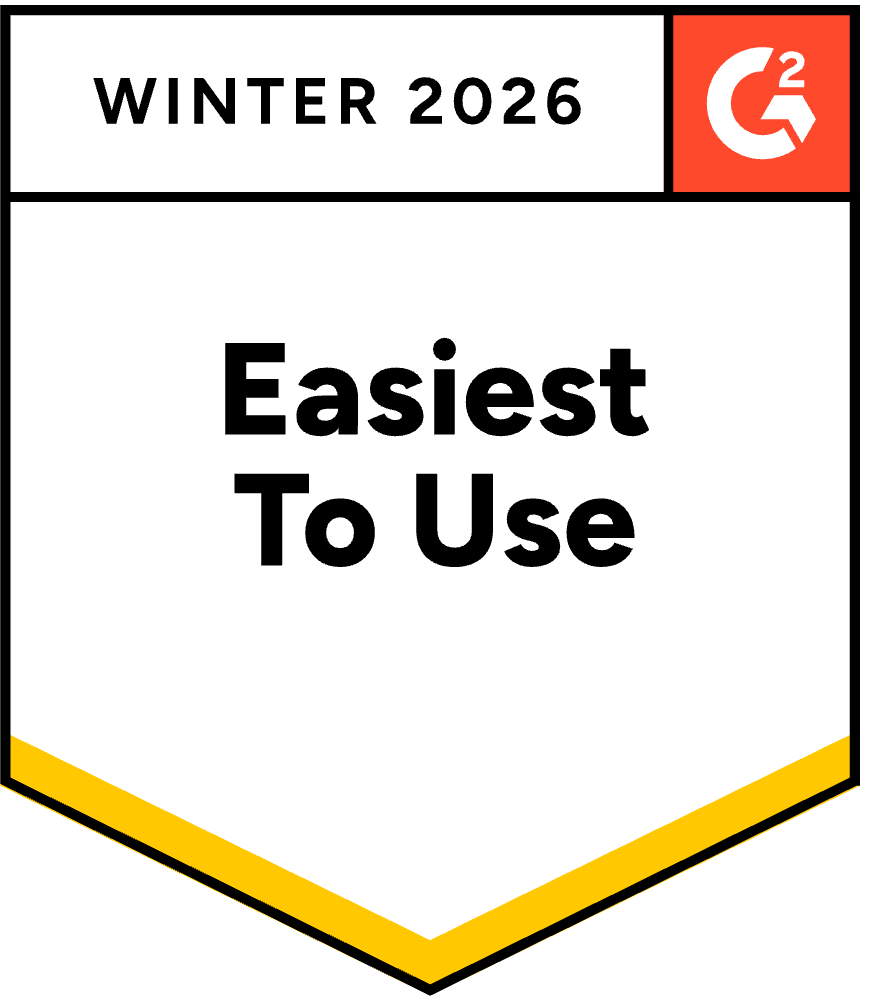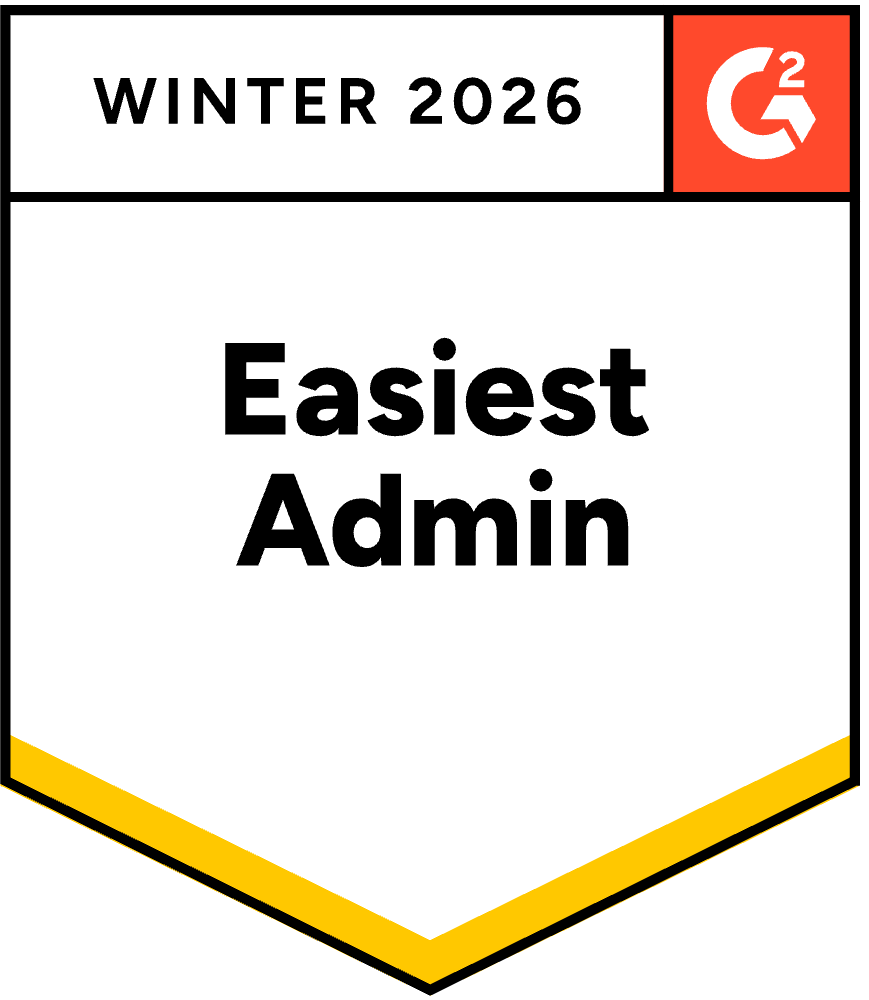Best Deal Intelligence Tools for Complex Sales Cycles
August 15, 2025
By
Evie Secilmis
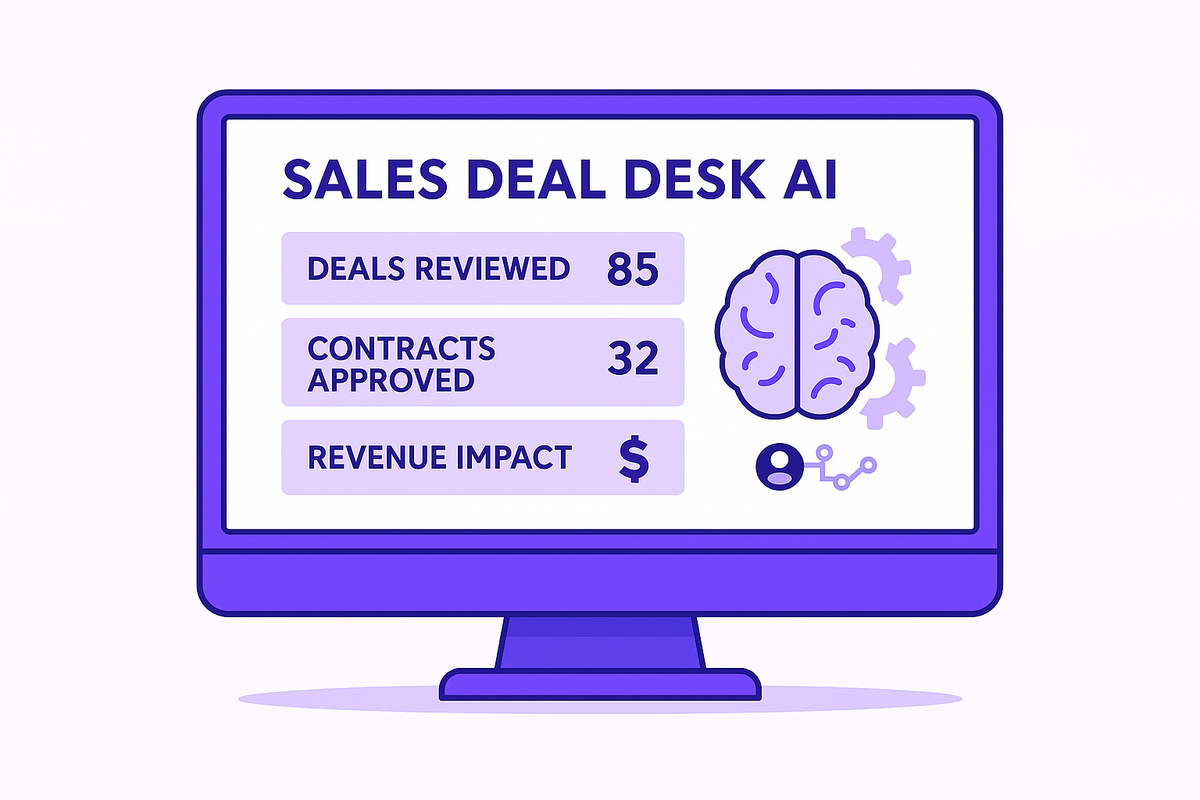
Your company’s collective knowledge—all the answers from past RFPs, product specs, and security details—is a massive library. A traditional deal desk is like having a librarian manually search for every single request. It’s slow and prone to error. The right deal desk tools, on the other hand, give that library a powerful, intelligent search engine. It instantly finds the most relevant, up-to-date information. This is what the best deal intelligence tool for complex sales cycles does. It frees your team from tedious searches to focus on strategy, turning your content into an active asset that helps you close deals faster.
Key Takeaways
- Reclaim your team's time by automating document responses: The core value of an AI deal desk is its ability to handle repetitive tasks like RFPs and security questionnaires, giving your sales reps more time to focus on strategic selling and building customer relationships.
- Choose a tool that solves your biggest sales bottleneck: Don't get lost in endless feature lists. Identify your team's main challenge—whether it's slow proposal creation or inconsistent data—and select a solution that integrates with your current systems to fix that specific problem.
- Measure what matters to prove your return on investment: Before you implement any tool, define what success looks like. Track key metrics like faster deal velocity, higher win rates, and time saved to clearly demonstrate the tool's value and justify the investment.
The Growing Impact of AI in Sales
It’s clear that AI is no longer a far-off concept for sales teams—it’s a practical tool that’s delivering real results right now. The conversation has shifted from *if* you should adopt AI to *how* you can integrate it to solve your most pressing challenges. The numbers speak for themselves, showing a clear trend toward AI-powered sales intelligence as a standard part of the modern sales toolkit. Companies that embrace these tools are not just keeping up; they are creating a significant competitive advantage by working smarter, not just harder. This technology helps teams automate tedious work, gain deeper insights from their data, and ultimately, spend more time on what they do best: building relationships and closing deals. It’s about equipping your team with the resources they need to perform at their peak.
Market Growth and ROI
The momentum behind AI in sales is undeniable. The sales intelligence market is expanding rapidly and is expected to reach $4.9 billion by 2027, signaling a massive industry-wide investment in these technologies. But this isn't just about spending money on the latest trend; it's about making a strategic investment that pays off. According to research from SuperAGI, the average return on investment for AI-powered sales intelligence tools is an impressive 300%. This kind of return shows that AI isn't a cost center but a revenue generator. By automating processes and providing better data, these tools directly contribute to the bottom line, making them a smart financial decision for any forward-thinking sales organization.
Performance Improvements Across the Board
Beyond the financial return, AI tools deliver tangible improvements to key sales metrics. Companies that use AI in their sales process see an average of 15% more sales revenue. This isn't a small bump; it's a significant increase that can reshape a company's growth trajectory. Furthermore, AI-powered intelligence can lead to a 25% increase in sales conversion rates and shorten the sales cycle by 30%. Think about what that means for your team: more wins, faster closes, and a more efficient pipeline. Tools like the Iris platform help achieve this by streamlining document-heavy processes, ensuring your team can respond to opportunities with speed and precision.
Common Challenges for Modern Sales Teams
If you feel like your sales team is constantly running just to keep up, you're not alone. Many of the challenges you face are widespread, from being buried in administrative work to struggling with messy data. The pressure to perform is always high, but the systems and processes in place often create more friction than flow. Reps are forced to spend valuable time on non-selling activities, which directly impacts their ability to hit quotas and drive revenue. These common hurdles aren't just minor annoyances; they are significant roadblocks that prevent teams from reaching their full potential. Recognizing these shared struggles is the first step toward finding a solution that gives your team the leverage it needs to succeed.
Time Management and Administrative Tasks
One of the biggest drains on productivity is the sheer volume of non-sales tasks. Sales reps spend a staggering 64% of their time on activities like data entry and administrative work. This means the majority of their day is spent away from customers. When you consider the time it takes to hunt down answers for RFPs, fill out security questionnaires, and manually update your CRM, it’s easy to see how the hours disappear. This is where automation becomes a game-changer. An AI deal desk can handle the repetitive work of generating first drafts of complex documents, freeing your reps to focus on strategy and client relationships.
Data Overload and Quality Issues
In theory, more data should lead to better decisions. In reality, sales reps are often overwhelmed by it. The problem is compounded when that data is unreliable. In fact, 93% of companies report that data quality is a major issue. When your team can't trust the information in your systems, they waste time second-guessing everything or, worse, send out proposals with outdated or incorrect information. This is why having a single source of truth is so critical. An intelligent system can manage your content, flag outdated information, and ensure every response is built on accurate, approved answers, turning your data from a liability into an asset.
Keeping Up with Competitors
The sales landscape is more competitive than ever, and analyzing what your rivals are doing is a constant challenge. It’s not just about knowing their products or pricing; it’s about matching their speed and professionalism. If your competitors are using AI to respond to RFPs in hours while your team takes days, you’re already at a disadvantage. The quality of your response documents reflects the quality of your organization. Slow, inconsistent, or inaccurate proposals can make you look disorganized. Winning in this environment means out-executing the competition at every turn, and that starts with having the right tools to operate with agility and precision.
Delivering Personalization at Scale
Everyone knows that personalization wins deals—80% of buyers say they prefer it. The challenge is delivering that unique, tailored experience to every single prospect when your team is already stretched thin. It’s a difficult balancing act. Reps are expected to craft customized proposals and thoughtful outreach while also managing a high volume of administrative tasks. This is where AI can bridge the gap. By automating the 80% of a proposal that is standard, your team can dedicate their energy to the 20% that truly matters: the strategic, personalized elements that show the customer you understand their specific needs and have the perfect solution.
What is an AI-Powered Deal Desk?
Think of a traditional deal desk as your sales team's mission control. It’s the central hub where complex deals are structured, proposals are built, and approvals are managed. Now, imagine giving that mission control a serious upgrade. An AI-powered deal desk uses artificial intelligence to automate and streamline these processes, turning a reactive support function into a proactive sales engine. Instead of just organizing information, an AI deal desk actively helps you win by providing data-backed insights and content suggestions right when you need them.
It goes beyond simple automation by learning from your past deals, successful proposals, and customer interactions. This intelligence helps your team respond to RFPs, security questionnaires, and SOWs with incredible speed and accuracy. The goal isn't to replace the human element of sales but to handle the time-consuming, repetitive tasks that can pull your team away from selling. This frees up your sales reps to do what they do best: build strong customer relationships and focus on strategic conversations that close deals. It’s about working smarter, not just harder, and using technology to give your team a competitive edge in every single deal.
Breaking Down the "AI" in Your Deal Desk
So, what does the "AI" part actually do? At its core, the AI in a deal desk is a powerful pattern-recognition machine. It analyzes vast amounts of data—from past RFPs and sales contracts to current market trends—to make intelligent suggestions and predictions. This is why AI sales tools are quickly becoming essential for staying competitive. Instead of manually searching through old documents for the right answer to a questionnaire, the AI finds the most relevant, up-to-date information for you. It can even forecast sales with greater accuracy by identifying trends you might have missed, giving your team a clear advantage.
How AI Helps Your Sales Team Close Faster
The biggest win with an AI deal desk is giving your sales team back their time. Reps often get bogged down in administrative work, like filling out tedious proposal documents or chasing down information from other departments. AI takes over these repetitive tasks, automating the first draft of an RFP response or instantly answering a security questionnaire. This allows your team to shift their energy from paperwork to people. They can spend more time understanding customer needs and building the relationships that lead to closed-won deals. An effective AI tool doesn't just speed up the process; it improves the quality of your proposals and helps you increase deal volume and win rates.
What Features Should Your AI Deal Desk Have?
When you start evaluating AI deal desk tools, it’s easy to get lost in a long list of features. Focus on what will actually make a difference for your team. First, the tool must be easy to use and customizable. If it’s too complicated, your reps won’t adopt it. Look for a platform that fits into your team’s existing workflow and integrates with the software you already use, like your CRM. You also need a tool with advanced analytics and reporting. The right platform should give you clear insights into your sales process, helping you make smarter, data-driven decisions. These core features are the foundation of a tool that will truly support your team.
10 AI Deal Desk Tools to Help You Close Faster
Finding the right AI deal desk tool can feel like searching for a needle in a haystack, but it doesn't have to be so complicated. The best choice for your team really comes down to your specific needs, your existing tech stack, and the problems you're trying to solve. Some tools are all-in-one platforms designed to manage the entire deal lifecycle, while others are specialized assistants that excel at a single task, like writing better emails or automating product demos.
To help you get started, I’ve put together a list of ten standout AI tools that are making a real difference for sales teams. We'll look at everything from comprehensive deal desk solutions that handle complex RFPs to nimble assistants that give you real-time advice on sales calls. Think of this as your curated guide to the best AI sales tech out there. Each of these tools offers a unique way to streamline workflows, gather intelligence, and ultimately, help your team spend less time on administrative tasks and more time building relationships and closing deals. Let's find the perfect fit for you.
1. HeyIris.ai
If your team is constantly buried in RFPs, RFIs, and security questionnaires, HeyIris.ai is a game-changer. It’s built specifically to tackle the most time-consuming parts of the sales cycle: responding to complex business documents. Iris uses AI to generate accurate first drafts in a fraction of the time it would take manually, pulling from a centralized knowledge base to ensure every answer is up-to-date and on-brand. It’s designed to enhance sales processes by providing AI-driven insights and automating repetitive tasks, allowing your team to focus on strategy and closing. It’s the kind of focused automation that directly impacts your team’s capacity and win rates.
2. Salesforce Einstein
For teams already living and breathing in the Salesforce ecosystem, Einstein is a natural choice. It’s not a standalone tool but an AI layer built directly into the Salesforce CRM. Its biggest strength is its predictive power. It helps sales teams by providing predictive analytics and insights based on customer data, analyzing your pipeline to score leads, forecast sales, and suggest the next best actions for your reps. It’s perfect for organizations that want to add a layer of intelligence to their existing Salesforce workflows without introducing an entirely separate platform.
3. HubSpot Sales Hub
HubSpot Sales Hub is another excellent option for teams that want an all-in-one solution. If you're already using HubSpot's CRM, its AI features feel like a seamless extension of the platform. It’s designed to make your entire sales process smoother, from automating email sequences to providing predictive lead scoring. As an all-in-one CRM with AI capabilities, it helps streamline sales processes and improve team productivity. This makes it a fantastic choice for small to mid-sized businesses that want powerful AI tools without the complexity of integrating multiple systems. It keeps everything under one roof, which is a huge win for efficiency.
4. Consensus
Consensus takes a unique approach by focusing on demo automation and buyer enablement. Instead of just helping your sales team, it empowers your prospects to guide their own discovery. It uses AI to create personalized, interactive video demos that buyers can explore on their own time. This approach is a top method for buyer enablement, as it helps qualify leads and ensures that when your team does connect with a prospect, the conversation is much more specific and valuable. It's ideal for teams with complex products, as it frees up your sales engineers from giving the same repetitive demos.
5. Regie.ai
Think of Regie.ai as your team’s AI content writer. It’s built to handle nearly every aspect of sales outreach. The platform can generate entire email sequences, social media posts, and call scripts that are tailored to your target personas and aligned with your brand voice. It's a great choice for a full set of AI sales tools, handling almost every part of customer outreach. This is incredibly useful for teams looking to scale their efforts while maintaining a high level of personalization and quality. It’s a great way to ensure consistency across all your reps' communications.
6. Dialpad
If your sales team spends a lot of time on the phone, Dialpad is a must-see. It’s an AI-powered communication platform that provides real-time assistance during calls. Imagine your reps getting live talking points and answers to tough questions while they’re still on the line with a prospect. It helps sales reps during calls by giving live advice, summarizing conversations, and even scoring call performance. After the call, it automatically generates summaries and analyzes the conversation for coaching opportunities. It’s a powerful tool for improving performance and ensuring every phone call is as productive as possible.
7. Lavender
Lavender is a specialized coach for your sales emails, and it’s one of my personal favorites for its simplicity and impact. It integrates directly into your inbox and acts as a real-time writing assistant. As you compose a message, Lavender analyzes it and provides a score along with actionable tips to make it better. It works with your email to help you write better sales emails, giving you scores and tips to make your messages more likely to get a response. It helps you strike the right tone, improve clarity, and increase your chances of getting a reply. It’s perfect for any rep who wants to sharpen their writing skills.
8. Clay
Prospecting and data enrichment can be a major time sink, but Clay is designed to automate it. This tool is incredibly effective at building highly detailed and targeted lead lists. It works by pulling information from dozens of sources, including LinkedIn and Clearbit, to create rich profiles for your prospects. Clay makes finding new customer information much faster by looking up details and adding useful data to their profiles. This allows your team to move beyond generic outreach and craft truly personalized messages at scale, which is key for breaking through the noise and connecting with high-value leads.
9. DealHub
DealHub offers a robust platform that focuses on the middle-to-late stages of the sales process, particularly Configure, Price, Quote (CPQ). It’s designed to be a central hub for creating proposals, managing contracts, and streamlining the approval process. It provides a comprehensive platform for sales teams to manage deals and streamline workflows. It connects your sales and revenue teams, ensuring that every deal moves smoothly from quote to close. If your team struggles with clunky proposal generation or a slow-moving contract process, DealHub provides the structure and automation needed to speed things up and reduce errors.
10. Outreach
Outreach is a powerhouse in the sales engagement space, known for its ability to automate and manage communication across multiple channels. It helps teams execute their sales plays with incredible consistency and scale. The platform is known for its automated multi-channel outreach capabilities, helping sales teams engage with prospects effectively. You can build complex sequences that combine emails, phone calls, and social media touchpoints, and the platform’s AI will provide insights into what’s working and what’s not. It’s an essential tool for high-volume sales teams that need to manage thousands of interactions without letting any prospects fall through the cracks.
Other Key Sales Intelligence Tools to Consider
While an AI deal desk is fantastic for managing the proposal and response part of your sales cycle, a whole ecosystem of sales intelligence tools can help you fill the top of your funnel and understand your buyers better. These platforms are all about data—finding the right contacts, understanding buying intent, and gathering the insights you need to have more meaningful conversations. They work hand-in-hand with a deal desk by ensuring the deals you spend time on are well-qualified from the start. Think of them as the reconnaissance team that identifies the best opportunities, while your deal desk provides the heavy artillery to win them. Let's look at some of the key players in this space that can give your team a serious competitive advantage.
Gong
Gong is a leader in what it calls "conversation intelligence." It connects to your team's calls, meetings, and emails, then uses AI to record and analyze every interaction. This gives you an unfiltered look at what your top performers are doing differently and where other reps might need coaching. Instead of relying on secondhand notes, managers can hear exactly how deals are progressing and provide targeted feedback. It’s an incredible tool for understanding your customer conversations at a deep level and making sure your team's messaging is hitting the mark every single time.
ZoomInfo
When it comes to pure B2B data, ZoomInfo is a giant. It boasts one of the most comprehensive databases of company and contact information available, making it a go-to for teams that need accurate phone numbers and email addresses. But it's more than just a directory. ZoomInfo helps you identify key decision-makers within your target accounts and keeps your CRM data clean and up-to-date automatically. If your team's biggest challenge is simply finding the right people to talk to, ZoomInfo provides the raw data you need to build targeted outreach lists and connect with prospects.
Apollo.io
Apollo.io is an all-in-one sales intelligence and engagement platform that’s popular for its powerful combination of a large contact database and built-in outreach tools. It allows you to find prospects, build lists, and then immediately engage them with automated email and call sequences, all within a single interface. The platform uses AI to help you personalize your messaging and keep your contact data fresh. For teams that want to consolidate their tech stack, Apollo.io offers a compelling solution that covers everything from prospecting to engagement without needing to jump between different tools.
LinkedIn Sales Navigator
For any B2B sales team, LinkedIn is an indispensable resource, and Sales Navigator is the key to unlocking its full potential. It’s designed to help you find and connect with the right people by using LinkedIn’s massive professional network. With advanced search filters, you can zero in on ideal prospects based on their title, company, or industry. It also provides valuable insights, like who has recently changed jobs or what your target accounts are posting about, giving you the perfect excuse to start a relevant conversation. It’s less about cold data and more about relationship-building.
6sense
6sense is a powerful tool for teams that want to uncover hidden buyer intent. It uses AI to track billions of online signals—like what topics companies are researching across the web—to identify accounts that are actively in the market for a solution like yours, even before they’ve contacted you. This allows your sales and marketing teams to focus their efforts on high-value accounts that are showing strong buying signals. It’s a proactive approach that helps you get in front of potential customers earlier in their journey.
Cognism
Cognism is known for its high-quality, accurate contact data, especially in European markets. Its standout feature is its phone-verified mobile numbers, which they call Diamond Data®, significantly increasing the chances that your reps will actually connect with a prospect. The platform uses AI to help with prospecting and provides context that helps your team personalize their outreach. If your sales team relies heavily on phone calls and struggles with low connect rates due to bad data, Cognism is a fantastic solution for improving the quality of your contact lists.
Clearbit
Now part of HubSpot, Clearbit excels at data enrichment. It can take a single piece of information, like a corporate email address, and instantly provide over 100 data points about the person and their company. This is incredibly useful for identifying anonymous website visitors, shortening lead capture forms to increase conversions, and giving your sales team the context they need before a call. By automatically enriching your records, Clearbit ensures your team has a complete picture of every lead, allowing for much more effective personalization.
Seamless.AI
Seamless.AI positions itself as a real-time search engine for B2B contact information. It uses AI to find and verify emails and phone numbers for professionals across any industry, helping you build targeted lists quickly. With a massive database and a focus on real-time verification, it’s a strong choice for teams that need to generate a high volume of leads for their outreach campaigns. The platform is designed to help you build lists and personalize your messaging at scale, reducing the time spent on manual prospecting.
LeadIQ
LeadIQ is designed to make prospecting faster and easier, especially for reps who spend a lot of time on LinkedIn. Its Chrome extension allows you to capture verified contact information from websites and social profiles with a single click. The platform also includes an AI tool to help you write personalized sales emails and has a useful feature that tracks when your contacts change jobs, creating a perfect opportunity for warm outreach. It’s a great tool for individual reps who want to streamline their workflow and capture prospect data more efficiently.
Demandbase
Demandbase is a comprehensive platform built for Account-Based Marketing (ABM). It helps you identify and target the accounts that matter most to your business. By tracking keyword research and other intent signals, it tells you which accounts are actively interested in your solutions. The platform uses AI to score accounts and provide insights that guide your sales and marketing efforts throughout the entire buying journey. For organizations committed to an ABM strategy, Demandbase provides the end-to-end solution needed to orchestrate complex, multi-stakeholder deals.
A Closer Look at AI Sales Coaching Tools
Beyond finding leads and managing deals, another exciting area where AI is making a huge impact is in sales coaching. While intelligence tools give you the data to find opportunities, coaching platforms help your team develop the skills to win them. These tools act like a personal coach for every rep, providing feedback and guidance that was once only possible through hours of manual call shadowing and review. They analyze real-world performance to offer objective, data-driven advice, helping everyone on your team learn from both their wins and their losses. This technology is shifting coaching from a once-a-quarter review to a continuous, real-time process.
How Sales Coaching Platforms Work
At their core, AI sales coaching platforms are sophisticated listening tools. They integrate with your communication systems—like Dialpad or Zoom—to record and transcribe sales calls and meetings. The AI then analyzes the conversation, looking for key patterns. It can identify the ratio of talking to listening, track how often certain keywords are mentioned, and even gauge customer sentiment. Based on this analysis, the platform provides insights to both the sales rep and their manager, highlighting moments of success and areas for improvement. It’s like having a game tape for every sales call, allowing for detailed, objective performance reviews.
Common Challenges and Data Requirements
One of the biggest hurdles for any sales team is data overload. Sales reps are often so busy with administrative tasks that they have little time left for actual selling—one study found that reps spend around 64% of their time on non-sales activities. On top of that, data quality is a massive issue for nearly every company. AI coaching tools help cut through this noise by focusing on the data that truly matters: the conversations happening with customers. Instead of asking reps to log more data, these platforms generate insights automatically, turning everyday interactions into valuable coaching opportunities without adding to the administrative burden.
Future Trends in AI Sales Coaching
The future of AI sales coaching is moving toward real-time assistance. Imagine a sales rep on a live call who gets a discreet pop-up on their screen suggesting a relevant case study to mention or a better way to handle a pricing objection. These platforms are also becoming more predictive, offering coaching suggestions based on the specific stage of a deal and the likelihood of it closing. The goal is to provide proactive guidance that helps reps in the moment, not just after the fact. This evolution will make coaching an even more integrated and immediate part of the daily sales workflow.
How to Choose the Right Deal Desk Software
With so many options on the market, picking the right AI deal desk tool can feel overwhelming. The key is to look past the flashy features and focus on what will actually help your team close more deals. A great tool should feel like a natural extension of your team, not another piece of software to manage. Think about your specific sales process, your team's current challenges, and where you need the most support. Use these criteria to guide your evaluation and find a solution that fits your needs perfectly.
Confirm It Integrates with Your Tech Stack
Your AI deal desk tool shouldn't operate in a silo. To get the most out of it, it needs to connect seamlessly with the software your team already uses every day, like your CRM, email, and communication platforms. A tool that integrates well with your existing sales tech stack prevents you from having to jump between different apps and manually transfer data. Look for a solution that offers robust, easy-to-configure integrations. This ensures that information flows smoothly, keeping everyone on the same page and making your team’s workflow more efficient from day one.
Is Your Sales Data Secure?
You’re trusting your AI tool with sensitive company and customer information, so security is non-negotiable. Make sure any solution you consider complies with major data protection regulations like GDPR and has clear security protocols in place, such as SOC 2 certification. The vendor should be transparent about how they handle your data, where it’s stored, and what measures they take to protect it from breaches. Don’t hesitate to ask direct questions about their data security practices. Your peace of mind and your clients' trust depend on it.
Will Your Team Actually Use It?
The most powerful tool in the world is useless if your team finds it too complicated to use. The best AI deal desks are intuitive and user-friendly, requiring minimal training to get started. Your sales reps should be able to adopt the tool easily and see its value right away. Look for a clean interface, logical workflows, and helpful support resources. A positive user experience means your team will actually use the tool consistently, leading to better adoption rates and a greater return on your investment.
Calculate the True Cost and ROI
When evaluating cost, look beyond the monthly subscription fee. Set a clear budget and consider the total cost of ownership, including any setup or implementation fees. More importantly, think about the potential return on investment (ROI). A more expensive tool might be worth it if it significantly shortens your sales cycle, improves your win rate, or frees up dozens of hours for your team each month. Frame the decision as an investment in your team's productivity and success. Calculate how the tool’s benefits will translate into real revenue growth for your business.
Check the Analytics and Reporting Features
A great AI deal desk doesn't just automate tasks; it provides you with actionable insights to make smarter decisions. The tool should offer robust analytics and clear reporting that help you understand your sales process on a deeper level. Look for features that can track key metrics like deal velocity, win rates, and team productivity. The goal is to get intelligent insights, not just a flood of raw data. These analytics will help you identify bottlenecks, recognize winning patterns, and coach your team more effectively.
How Much Time Will It Really Save You?
The core purpose of an AI deal desk is to handle the repetitive, time-consuming tasks that keep your sales team from selling. Evaluate the tool's automation capabilities carefully. Can it automatically populate RFPs and security questionnaires with accurate, up-to-date information? Can it help qualify leads or suggest the most relevant content for a specific deal? The right tool will automate administrative work, giving your reps more time to focus on building relationships and closing deals, which is where they create the most value.
Which AI Features Actually Drive Sales?
When you're evaluating different AI deal desk tools, it's easy to get lost in a long list of features. The key is to focus on the capabilities that will genuinely impact your sales process and help your team close more deals. A great tool isn't just about adding more bells and whistles; it's about providing tangible value that streamlines workflows, offers clear insights, and frees up your team to do what they do best: sell. Let's break down the core features that make a real difference.
Identifying Buyer Intent Signals
Think of buyer intent signals as the digital breadcrumbs your prospects leave behind as they research solutions. These are the actions that show someone is actively moving toward a purchase, like visiting your pricing page multiple times, downloading a case study, or searching for specific keywords related to your product. AI-powered tools are brilliant at tracking and analyzing these signals across the web. Instead of treating every lead the same, your team can instantly see who is most engaged and ready for a conversation. This allows your reps to prioritize their outreach and focus their energy on the hottest leads, which is why companies that effectively use buyer intent data are 2.5 times more likely to hit their sales goals.
Using Predictive Analytics to Find Customers
Predictive analytics takes the guesswork out of prospecting. Instead of casting a wide net, AI analyzes your historical sales data to understand what your ideal customer looks like. It examines the characteristics of your most successful deals—industry, company size, and even the specific pain points they had—to build a data-driven profile. The AI then uses this model to scan the market and identify new prospects who fit the same criteria. This not only helps you find potential customers you might have otherwise missed but also improves your lead scoring accuracy. By focusing on accounts that are statistically more likely to close, you can see a significant increase in sales productivity and revenue.
Automating Insights from Data
Sales teams are sitting on a mountain of data, from CRM entries and call transcripts to email exchanges. The problem is, no one has time to manually sift through it all to find the gold. This is where AI shines. It can process huge volumes of information and automatically uncover patterns that lead to actionable advice. For example, an AI tool might analyze thousands of deals and discover that your win rate is higher when you send a specific case study within the first week. These automated insights turn raw data into a strategic playbook for your team, helping you refine your sales process and make smarter decisions that can shorten sales cycles and increase deal sizes.
Monitoring Competitors and Creating Battlecards
Keeping up with the competition is a full-time job, and static battlecards quickly become outdated. AI automates this entire process by constantly monitoring the market for you. It scans for competitor news, pricing changes, new feature launches, and shifts in customer sentiment. This intelligence is then used to automatically generate and update your competitive battlecards in real time. When a prospect brings up a competitor on a call, your reps have the most current information right at their fingertips, including key differentiators and effective responses to common objections. This proactive approach ensures your team is always prepared and can significantly improve win rates in head-to-head deals.
Mapping Accounts to Find Decision-Makers
Selling into large organizations can feel like trying to find your way through a maze. It’s often difficult to identify who holds the budget and who has the final say. AI-driven account mapping tools solve this by analyzing public data, like LinkedIn profiles and company announcements, to build a clear picture of an organization's structure. The tool identifies key decision-makers, influencers, and the relationships between them, showing you the clearest path to a sale. This allows your team to move beyond a single point of contact and build a multi-threaded strategy, ensuring you’re connecting with all the right people. This level of insight can dramatically accelerate deal closure rates by getting you to the right conversations faster.
Process Documents Without the Headaches
Think about all the time your team spends creating and responding to documents like RFPs, RFIs, and SOWs. Intelligent document processing uses AI to automate this heavy lifting. The software can instantly generate accurate first drafts, find the right answers from your content library, and even flag outdated information. This means your team can respond to proposals in a fraction of the time. An AI sales assistant can handle these repetitive tasks, ensuring your proposals are not only faster but also more consistent and precise, giving you a competitive edge from the start.
Get Insights That Help You Win
Data is great, but insights you can act on are even better. Actionable deal intelligence is about turning raw data into clear, strategic recommendations. Instead of just showing you a dashboard of numbers, the AI analyzes customer behavior and past sales cycles to suggest the next best step. It helps your team understand which deals are most likely to close and what actions will move them forward. This feature helps you set more realistic goals and build a sales strategy that’s based on data, not guesswork.
Qualify Leads Automatically
Not all leads are created equal. Automated lead qualification uses AI to analyze incoming leads and score them based on their likelihood to convert. The system can quickly identify which prospects are genuinely interested and ready for a conversation, sending their information directly to the right person on your sales team. This eliminates the time wasted on chasing cold leads and allows your reps to focus their energy on high-potential opportunities. It’s a smarter way to fill your pipeline and accelerate the sales cycle from the very first touchpoint.
Help Your Team Work Better, Together
When your sales, proposal, and leadership teams work in silos, deals slow down. The right AI tool acts as a central hub where everyone can collaborate effectively. It ensures everyone has access to the most current information and can contribute to proposals and strategies in real time. This unified workspace means less time spent in back-and-forth emails and more time focused on the customer. By streamlining communication, these tools help your sales experts concentrate on what they do best: building relationships and closing deals.
Predict Your Next Move with Analytics
Predictive analytics takes forecasting to the next level. Instead of just looking at past performance, AI analyzes historical sales data, market trends, and current deal progression to generate highly accurate sales predictions. This gives you a much clearer picture of what your future revenue will look like. With these insights, you can make more informed decisions about resource allocation, set achievable quotas, and proactively address potential shortfalls in your pipeline. It’s like having a crystal ball that’s backed by powerful data science.
Keep All Your Deal Data in One Place
Keeping customer data organized and up-to-date is a constant challenge. An AI-powered deal desk often includes features similar to an AI-driven CRM, centralizing all your customer information in one place. The system can automatically update records, reduce tedious data entry, and ensure all information is accurate across your connected tools. This creates a single source of truth for your entire team, making it easier to personalize outreach and manage customer relationships effectively. It’s a foundational feature that supports every other aspect of your sales process.
How to Implement Your New Deal Desk Software
Choosing the right AI deal desk tool is a huge step, but it’s only the first one. The real magic happens when you have a solid plan to introduce it to your team and weave it into your daily operations. A thoughtful implementation strategy is the difference between a tool that gathers digital dust and one that becomes an indispensable part of your sales process. Before you even sign on the dotted line, you should be thinking about how you’ll roll out the new software. This means getting clear on your resources, preparing your team for the change, defining what success looks like, and planning for any bumps in the road.
A well-executed plan ensures your team adopts the tool quickly and starts seeing results faster. It minimizes disruption and builds momentum from day one. Think of it as creating a roadmap for your team that leads directly to higher win rates and a more efficient sales cycle. By planning ahead, you set the stage for a smooth transition and demonstrate the tool's value right away, which is key to getting everyone on board. Successful teams don't just buy software; they build a strategy around it, as you can see in these customer stories of businesses that transformed their sales process.
Line Up Your Time and Resources
Before you begin, take stock of what you’ll need to make the implementation a success. This goes beyond the subscription fee. Your most valuable resource is your team's time. You'll need to identify a project lead or a small group of "champions" who can spearhead the rollout, learn the tool inside and out, and act as go-to experts for their colleagues. It's also critical to figure out what problems you're trying to solve. Are you trying to shorten your RFP response time or improve the quality of your security questionnaires? Understanding your team's specific needs will help you focus your implementation efforts where they'll have the most impact. Make sure you allocate enough time for everyone to get comfortable with the new system without feeling rushed.
Get Your Team Ready for a Smooth Rollout
Sales reps often have a lot on their plates, and the thought of learning another new piece of software can feel overwhelming. That’s why your training plan needs to be efficient, relevant, and focused on their needs. Instead of a single, long training session, consider breaking it up into shorter, more digestible workshops that focus on specific tasks. Show them exactly how the new AI tool will make their least favorite parts of the job—like digging for answers to repetitive RFP questions—easier and faster. When you design your training, frame it around the benefits to them personally: more time for building relationships and closing deals. Choosing a tool with an intuitive interface and powerful automation features will also make adoption much smoother.
What Does Success Look Like for You?
How will you know if your new AI deal desk is actually working? You need to define what success looks like before you start. Setting clear, measurable goals gives you a benchmark to evaluate the tool's performance and demonstrate its return on investment. These metrics should be tied directly to the problems you set out to solve. For example, you might track the average time it takes to complete a first draft of an RFP, the number of deals your team can handle each quarter, or the change in your overall win rate. Having these key performance indicators (KPIs) in place allows you to see the tangible benefits of the tool and make data-driven decisions about how to use it even more effectively.
Connect It to Your Existing Tools
For an AI tool to truly streamline your workflow, it needs to play well with the software you already use every day. A deal desk that operates in a silo will only create more manual work as your team copies and pastes information between systems. Before committing to a tool, map out how it will connect with your existing tech stack. The most critical integration is usually with your CRM, like Salesforce or HubSpot, but you should also consider your communication platforms and cloud storage. A seamless platform integration means your AI can pull customer data, access your content library, and push updates automatically, creating a single source of truth and a much more efficient process for your entire team.
Plan for Potential Roadblocks
Even the best implementation plans can hit a snag. Being aware of common challenges helps you prepare for them proactively. One of the biggest hurdles is data quality. AI is powerful, but its output is only as good as the information it's given. If your existing content library is disorganized or out-of-date, you'll need to dedicate time to cleaning it up. Another potential issue is team resistance to change. Some people may be comfortable with the old way of doing things. Address this by communicating openly, highlighting the personal benefits, and celebrating early wins to build enthusiasm. Acknowledging these potential change management challenges will help you create a smoother transition for everyone involved.
Building Your AI Sales Stack and Strategy
Integrating AI into your sales process is more than just buying a new piece of software; it's about building a strategy that empowers your team to work more effectively. The right AI tools should feel like a natural extension of your team, handling the tedious work so your reps can focus on building relationships and closing deals. But a successful strategy requires more than just technology. It demands a thoughtful approach to training, a forward-looking plan for the future, and a commitment to choosing tools that your team will genuinely embrace and use every day. Let's walk through how to build a foundation for success.
Encouraging Team Training and Adoption
Getting your team on board with a new tool is one of the most critical parts of any implementation. The key is to show them how it makes their jobs easier, not more complicated. Provide practical, hands-on training that demonstrates how the AI tool fits directly into their daily workflow. Instead of a long, generic presentation, try running small group sessions focused on specific tasks, like how to generate an RFP response in minutes. When your team sees firsthand how much time they can save on administrative work, they'll be much more excited to adopt the new system. Involving them in the selection process from the start also gives them a sense of ownership and makes them more invested in its success.
Preparing for an AI-Driven Future
As AI becomes more integrated into sales, the skills your team needs will also evolve. Success will depend on more than just strong communication; it will require a comfort level with data analysis and strategic thinking. Start preparing your team now by creating a clear AI plan that outlines your goals and how you'll measure success. This isn't just about implementing tools; it's about fostering a culture that embraces data-driven decision-making. You can even consider creating a small, dedicated team to manage your AI tools and share best practices. By investing in the right tools and setting clear goals, you can monitor how AI impacts your sales and ensure your team is ready for what's next.
Why You Should Always Try Before You Buy
A long list of features on a website can be impressive, but it doesn't tell you how a tool will actually perform for your team. That's why you should always take advantage of demos and free trials. This is your chance to see if the software's workflow aligns with how your team operates. The most powerful tool is worthless if it's clunky or confusing. The best AI solution is the one your sales team will actually use every single day. During a trial, pay close attention to the user experience. Is it intuitive? Does it solve the specific problems you identified? Getting your team's hands on the software is the only way to know for sure if it’s the right fit for your process.
How to Measure Your Success
Bringing a new tool into your sales process is a big step, and you need to know it’s paying off. An AI deal desk isn't just about making work easier; it's about driving real, measurable results. When you set up your new system, you should also define what success looks like. By tracking the right metrics from the start, you can clearly see the impact of AI on your team’s performance and your company’s bottom line. Focus on these key areas to get a full picture of your return on investment.
Are You Seeing Revenue Growth?
The most straightforward measure of success is your revenue. Are you closing more deals and bringing in more money? It’s a simple question with a powerful answer. According to recent data, an impressive 83% of sales teams using AI saw their revenue increase. This isn't a coincidence. AI deal desks streamline the proposal process, allowing your team to respond to more opportunities with higher quality answers. By reducing the time it takes to generate RFPs and other sales documents, your team can focus its energy on activities that directly lead to sales, making revenue growth a tangible outcome of your investment.
Measure Your Time and Cost Savings
Think about how much time your team currently spends on repetitive administrative tasks. AI is brilliant at handling things like data entry and updating records, which frees up your sales reps to do what they do best: sell. This shift doesn't just save time; it saves money. When your team can create first-draft proposals in minutes instead of hours, the operational cost per deal drops significantly. You can calculate these savings by tracking the time spent on proposals before and after implementing an AI tool. This efficiency means your team can handle a larger volume of deals without needing to expand headcount.
Is Your Deal Velocity Increasing?
Deal velocity measures how quickly an opportunity moves through your sales pipeline from initial contact to a closed deal. A slow proposal process is often a major bottleneck that stalls momentum. AI helps you predict future sales by analyzing past performance, but it also actively speeds up the current cycle. An AI-powered deal desk can instantly pull the most relevant and accurate information for any proposal, cutting down on research and writing time. This acceleration means you can get proposals into the hands of prospects faster, shorten your sales cycle, and recognize revenue sooner.
How Much Have Your Win Rates Improved?
How many of your proposals actually turn into wins? Improving this percentage is a core goal for any sales team. The key is often personalization. Research shows that companies focusing on personalization see 40% more revenue from those efforts. An AI deal desk makes it possible to tailor every single response without adding hours of work. The system can pull specific case studies, security details, and product information relevant to each prospect, ensuring every proposal is compelling and customized. This high level of quality and personalization directly contributes to higher win rates, a key benefit of an AI deal desk solution.
Track Your Team's Productivity
Beyond revenue and win rates, it’s important to look at how AI impacts your team’s day-to-day workflow. AI tools are designed to help your sales experts perform their jobs better and faster, not replace them. You can measure productivity by tracking metrics like the number of proposals your team can generate each week or the average time it takes to respond to an RFI. With AI handling the heavy lifting of information retrieval and initial drafting, your team can manage a higher workload without feeling overwhelmed. This allows your top talent to focus on strategy, relationship-building, and closing complex deals.
What's Next for AI in Sales?
The world of AI in sales is moving fast, and it’s exciting to think about what’s just around the corner. While today’s tools are already transforming how we work, the future promises even more sophisticated and helpful capabilities. We’re moving beyond simple automation and into a new phase of intelligent partnership, where AI acts as a true co-pilot for your sales team. Here’s a look at the key trends that will shape the future of sales and how you can prepare for them.
The Future is Smarter Automation
The next wave of AI is all about smarter, more intuitive automation. We’re already seeing how AI sales tools help teams spend less time on repetitive tasks and more time actually selling. The future is less about just automating work and more about automating the right work with greater context and intelligence. Imagine an AI that not only fills out an RFP but also flags potential compliance issues based on the client’s industry or suggests stronger, more persuasive language by analyzing past winning proposals. This level of automation frees up your team for high-level strategy and building genuine customer relationships, which is where they truly shine.
Expect Deeper, More Predictive Analytics
Get ready for your sales forecasts to become incredibly accurate. Future AI will dig even deeper into your data, analyzing past performance and market trends to predict outcomes with stunning precision. AI can analyze vast amounts of historical sales data and customer behavior to help your team set realistic goals and allocate resources more effectively. This means moving from educated guesses to data-driven certainty. It’s about more than just knowing what you’ll sell next quarter; it’s about understanding why and identifying which deals need a little extra attention to get them across the finish line, all based on predictive insights.
Get Ready for Even Tighter Integrations
No single tool can do it all, which is why the future of AI in sales lies in creating a connected ecosystem. Sales teams are increasingly building a "tech stack" of specialized, AI-powered solutions that work together. The key is seamless integration. Your AI deal desk should communicate effortlessly with your CRM, your email client, and your internal knowledge bases. A tool should be simple for your team to learn and use, but it also needs to fit your specific workflows and connect with your existing software. This creates a single source of truth and ensures that your AI has access to all the information it needs to provide the best possible support.
Ready to Make Your Choice?
You’ve seen what AI deal desks can do and explored some of the top contenders. Now comes the most important part: picking the right one for your team. This decision goes beyond just features; it’s about finding a partner that aligns with your goals, budget, and vision for the future. To make a confident choice, focus on a few key areas that will help you separate the ideal solution from the rest of the pack.
Create Your Must-Have Checklist
Before you even look at another demo, take a moment to create a simple evaluation checklist. Start by getting clear on your team’s biggest challenges. Are you spending too much time on RFPs? Is inconsistent information in DDQs costing you deals? List these pain points. Then, create two columns: "must-have" and "nice-to-have" features. Your must-haves should directly solve your main problems, like AI-powered document generation or a centralized content library. This checklist will be your north star, helping you objectively compare different platforms and stay focused on what truly matters to your team.
Find a Tool That Fits Your Budget
When it comes to budget, think beyond the monthly price tag. You need to consider the total cost of ownership, which includes any setup fees, training costs, and charges for additional users or integrations. Set a clear budget, but also think about the return on investment (ROI). A cheaper tool that saves your team five hours a week might not be as valuable as a slightly more expensive one that saves them 20 hours and improves your win rate by 10%. Calculating the potential ROI will help you justify the cost and understand the true financial impact of your investment.
Does It Solve Your Team's Biggest Problems?
The ultimate goal of an AI sales tool is to help your team spend less time on administrative work and more time selling. The right tool should feel like a natural extension of your team, automating the repetitive tasks that drain their energy. Does it simplify the process of responding to complex proposals and questionnaires? Does it provide useful information that helps them personalize their outreach? Look for a solution that directly addresses your team’s daily workflow and helps them achieve better outcomes, rather than forcing them to adopt a whole new way of working.
Pick a Partner That Can Grow With You
Your business won’t stand still, and your deal desk software shouldn't hold you back. As you evaluate options, think about your company’s growth trajectory. Will this tool be able to support you in one, three, or five years? True scalability means the platform can handle more users as your team expands and manage a growing volume of data without a drop in performance. Choosing a tool that can grow with your business ensures you’re making a long-term investment, not just finding a temporary fix that you’ll outgrow next year.
Related Articles
Frequently Asked Questions
What’s the real difference between an AI deal desk and my CRM? Think of it this way: your CRM is your address book, and your AI deal desk is your action plan. A CRM is fantastic for managing customer relationships and tracking interactions over time. An AI deal desk, on the other hand, is built to actively help you win deals by streamlining the creation of complex sales documents like RFPs and security questionnaires. The two work best as a team. The deal desk pulls information from your CRM to create smarter, more personalized proposals, turning your customer data into winning content.
I'm worried an AI tool will make my sales team's roles obsolete. Is that a valid concern? That's a completely understandable thought, but the goal of these tools isn't replacement—it's support. An AI deal desk acts as a highly efficient assistant for your best reps. It takes over the tedious, time-consuming tasks that nobody enjoys, like digging through old files for answers or formatting documents for hours. This frees up your team to focus entirely on the human side of sales: building strong relationships, understanding nuanced customer needs, and thinking strategically to close a deal.
Our current sales content is all over the place. Do we need to have everything perfectly organized before we can use an AI deal desk? You don't need perfection, but you do need a plan. In fact, implementing an AI deal desk is often the perfect reason to finally get your content in order. The setup process naturally guides you toward creating a central knowledge library. While it does require some upfront effort to gather and clean up your best-performing answers and case studies, a good platform makes this process manageable. The long-term payoff is a single source of truth that ends the constant hunt for information and ensures every proposal is consistent and accurate.
How much time and training does it really take to get a sales team using one of these tools effectively? This can vary, but the best platforms are designed for quick adoption. The initial setup and integration might require some focused time from a project lead, but training for the sales team can often be done in just a few short, targeted sessions. The key is to show them how the tool solves their biggest headaches. When a rep sees that it can cut their RFP response time in half, they become motivated to learn it very quickly. Prioritizing a tool with a clean, intuitive design will make the transition even smoother.
We're a smaller business with a tight budget. Are AI deal desks only for large enterprise teams? Not at all. While some platforms are certainly built for massive organizations, many modern AI deal desks are designed to be scalable and accessible for teams of all sizes. Instead of focusing only on the price, consider the return on investment. If a tool helps your small team respond to more opportunities and improve your win rate, it can pay for itself very quickly. Many providers offer different pricing tiers, allowing you to start with a plan that fits your current needs and grow with it as your business expands.
Share this post
Link copied!



